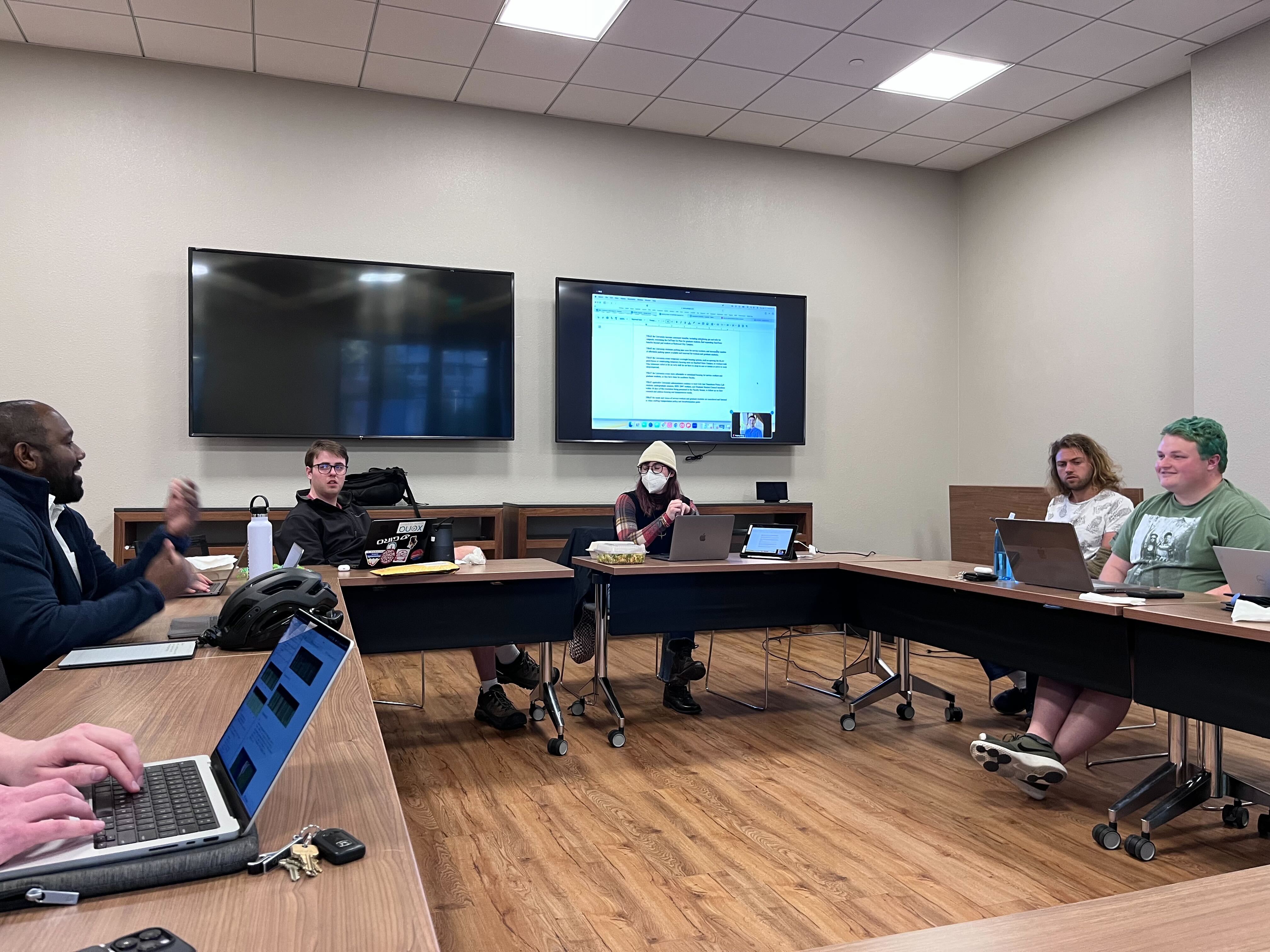In its first meeting with both outgoing and newly-elected council members, the Graduate Student Council (GSC) discussed funding approvals, updated new councilors on healthcare reform efforts and voted on several bylaw changes related to election standards on Tuesday night.
Funding requests and healthcare advocacy
The GSC voted on three funding requests, unanimously approving the Stanford Italian Society’s request for funding and tabling the other two. One of the tabled requests came from the American Institute of Aeronautics and Astronautics, which requested $275 to host a student-faculty lunch.
Some council members expressed discontent with providing funding that would go toward paying for food eaten by faculty. “I’m not comfortable funding anything that then funds feeding faculty, because it’s taking from students,” said Kristen Jackson, a third-year Ph.D. student in education and the GSC’s Diversity and Advocacy Chair.
Fourth-year Ph.D. student in aeronautics and astronautics and GSC co-chair Jason Anderson argued that some departments receive less funding from other sources for events, forcing them to request funding from the GSC. Additionally, he pointed towards previous events of a similar nature funded by the GSC. “I’m going to vote yes, because I think that would be consistent with every other event we’ve doing, whether or not it’s right or wrong,” he said.
The GSC agreed to discuss the funding for the tabled requests at its next meeting after council members receive more information.
Anderson updated new council members on his advocacy piece related to student involvement in the design of Cardinal Care, the University-sponsored health insurance option that has faced student concerns about affordability and quality of care. Anderson said that he has been working to create a committee in response to these concerns and was finally able to do so this year.
“We had to fight tooth and nail to have that restarted,” Anderson said. “We’ve had struggles with this due to bad faith efforts from admin.” He added that, “now we have learned that they don’t want to have this committee because of the SGWU (Student Graduate Workers Union) effort.”
For years, graduate students have engaged in advocacy related to affordability issues, including high costs of housing and healthcare. After accumulating more than 3,600 signed authorization cards by Stanford graduate student workers interested in being represented by the union, the SGWU filed a petition in late April for a unionization vote.
Schell invited council members to join a planned meeting with Executive Director of Vaden Health Center James Jacob to discuss changes related to healthcare. “Healthcare is not within the purview of the union because it impacts all students, graduate or undergraduate, funded or unfunded,” Schell said. “And this committee represented currently the only opportunity to provide feedback [on Cardinal Care].”
Bylaw changes
The GSC also voted on six proposed joint bylaws changes, approving four unanimously and failing to pass a joint bill to amend the executive election turnover timeline.
The first proposed bylaw change passed by the GSC was the Joint Bylaws Regarding Election Sanctions, which Lawrence Berg, a fourth-year chemistry Ph.D. student and the GSC’s Representative to the Faculty Senate, described as “not perfect, but a complete step in the right direction” in creating updated election reforms. The bill will allow the Election Commissioner “some leeway on what to sanctions to apply” in response to potential campaign violations.
The bylaw change comes on the heels of a recent case current Election Commissioner Whit Froehlich J.D. ’24 brought against Ivy Chen ’26 on allegations of campaign overspending. The case was eventually dropped.
According to Berg, under the role’s current rules, the election commissioner is mandated to call for sanctions related to election policies. However, the new bylaw changes propose alternative opportunities to enact less harsh sanctions, Berg said.
In addition to bylaw changes, the GSC unanimously passed bills regarding GSC elected members’ turnover dates, election procedure rules and closed sessions procedures. Council members also passed a bill about treasurer procedures in processing funding requests.
In a discussion marked by disagreement among members of the council, the Joint Bill To Amend the Executive Election Turnover Timeline failed to pass on a 4-5 vote. The bill, which unanimously passed the Undergraduate Senate (UGS), would end the term of the sitting ASSU executives two weeks after the certification of election results for the new administration.
Elizabeth Park, third-year chemistry Ph.D. student and GSC Secretary, voted no on the bill.
“Having exec turnover contingent on certification was what we had 20 years ago, and it was changed for a reason because UGS continually tried to not allow exec turnover,” she said.
Froehlich added that any possible investigations into campaign violations would lead to “some trouble” because “it’s likely that would take longer than 2 weeks to resolve.”
Before voting, Anderson, who helped create the co-sponsored bill, said, “this was the best I could do, and if it’s voted down, the next GSC does need to resolve this issue. I wish you all luck in doing that.”
